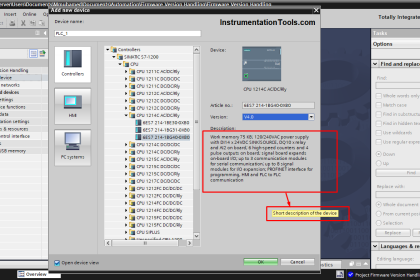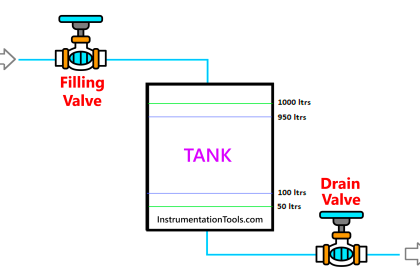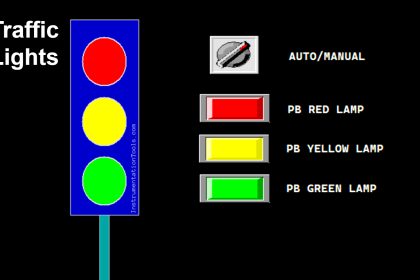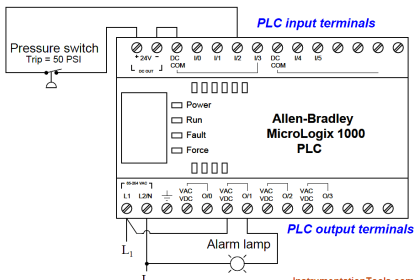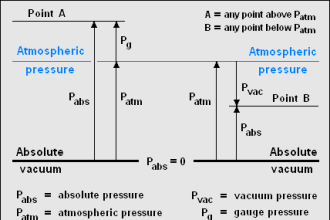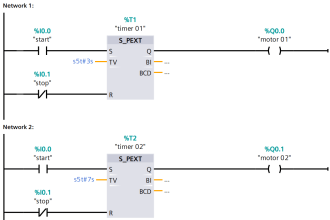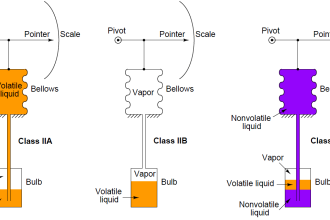Automation has become a critical part of any industrial process; over the years many automation vendors have emerged to satisfy the need for new and more innovative solutions to automation never-ending challenges.
In this article, we will discuss automation vendors, give a different example and mention the advantages and disadvantages of having so many automation vendors.
Contents:
- What is automation?
- Importance of automation in industrial processes.
- Examples of automation vendors over the world.
- Why do so many automation vendors exist?
- Advantages and disadvantages of having many vendors.
- How to choose the best vendor for my application.
- Conclusion.
What is Automation?
In general, automation refers to the use of technology to perform tasks that would otherwise be done by humans. That can involve the use of machinery, software, or other types of technology to automate tasks or processes that are typically performed manually. Automation can be used to improve efficiency, reduce errors, and free up human workers to focus on more complex or creative tasks.
Automation in industrial processes is the use of technology to automate various tasks or processes in manufacturing, production, or other types of industrial facilities. This can involve the use of machinery, robotics, control systems, PLCs, HMIs, sensors, actuators, and other types of automation tools to optimize industrial processes.
For example, in a manufacturing plant, automation can be used to automate the assembly line, with robots and machines taking over tasks that were previously done manually. This can lead to faster and more efficient production, as well as increased safety and accuracy in the manufacturing process.
Importance of Automation in Industrial Processes
Introducing automation to the industrial sector has provided many advantages to manufacturing facilities, some of these benefits are:
Improved Efficiency and Productivity
Automation can help to optimize industrial processes, leading to faster and more efficient production. This can result in increased output and productivity.
Consistent Quality
Automation can help to ensure consistent quality in the manufacturing or production process, as machines and robots can perform tasks with high precision and accuracy.
Increased Safety
Automation can help to improve safety in the industrial sector by reducing the need for workers to perform dangerous or hazardous tasks.
Robots and machines can handle these tasks, reducing the risk of injury to human workers.
Lower Costs
Automation can help to reduce costs by reducing waste and minimizing the need for rework or quality control.
Greater Flexibility
Automation allows for faster adjustments and modifications to production processes as needed, which helps increase the flexibility of industrial processes.
Top Automation Vendors

There are many different types of automation vendors that provide a wide range of products and services. Some estimates suggest that there may be several hundred automation vendors worldwide, although this number can vary depending on how automation vendors are defined and categorized here are some of the well-established automation vendors worldwide:
Siemens
Siemens is a global leader in automation technology, offering a range of products and solutions for industrial automation, process automation, and building automation.
ABB
ABB is a Swiss-Swedish multinational corporation that provides automation technology and solutions for various industries, including robotics, electrification, and industrial automation.
Rockwell Automation
Rockwell Automation is an American company that provides industrial automation and digital transformation solutions, including control systems, software, and services.
Schneider Electric
Schneider Electric is a French multinational corporation that specializes in energy management and automation solutions for various industries, including building automation, industrial automation, and power distribution.
Mitsubishi Electric
Mitsubishi Electric is a Japanese multinational company that offers a wide range of automation and control solutions for various industries, including industrial automation, process automation, and building automation
Honeywell
Honeywell is a multinational company that provides a wide range of products and solutions, including automation and control systems for various industries such as aerospace, building automation, and process automation.
Emerson
Emerson is a global technology and engineering company that provides automation solutions for various industries, including oil and gas, chemical, and pharmaceuticals. Their offerings include control systems, measurement and analytical instruments, and services.
General Electric (GE)
GE is a multinational company that provides automation solutions for various industries, including aviation, energy, and healthcare. Their automation offerings include control systems, software, and services.
Omron
Omron is a Japanese company that specializes in automation and control solutions for various industries, including automotive, electronics, and healthcare. Their offerings include control systems, sensing and measurement devices, and robotics.
Festo
Festo is a German company that provides automation solutions for various industries, including automotive, food and beverage, and packaging. Their offerings include control systems, sensors, and pneumatics.
As we said, it will be difficult to list all automation vendors worldwide, but there are more and more automation names that are very well-established in the automation sector and not mentioned above.
Some of these automation vendors are:
- Bosch Rexroth
- B&R Automation
- Beckhoff Automation
- Delta Electronics
- Phoenix Contact
- Pilz Automation Safety
- SICK AG
- Toshiba International Corporation
- Yaskawa Electric Corporation
- Yokogawa Electric Corporation
- Keyence Corporation
- Advantech
These are just a few examples of automation vendors worldwide. Each vendor may have different areas of expertise and may offer a range of software solutions for different applications and industries.
Why do so many Automation Vendors exist?
There are several reasons why so many automation vendors exist:
Different Customer Needs:
Different industries and applications have different requirements when it comes to automation. This has led to the need for many vendors that specialize in specific areas of automation, such as robotics, process control, or motion control.
Technological Advancements:
The development of new technologies, such as the Internet of Things (IoT), artificial intelligence (AI), and machine learning, has opened up new possibilities for automation. Many vendors have emerged to offer new automation solutions that use these technologies.
Global Demand:
The demand for automation has increased around the world, as companies look for ways to improve efficiency, productivity, and safety in their operations. This has led to a growing market for automation vendors.
Competition:
The automation industry is highly competitive, with many vendors competing for market share. This competition has led to the development of new products and technologies, as well as competitive pricing and service offerings.
Advantages and disadvantages of having many Automation Vendors
Here we discussed the pros and cons of having many industrial automation vendors.
Advantages of having many Automation Vendors
- Having many vendors in the market can create healthy competition; this can drive innovation and lower costs for customers. And can also result in better products and services.
- With many vendors offering a wide range of products and services, customers have a wider range of solutions to choose from. This can help them find the best fit for their specific needs and requirements.
- In a competitive market, vendors may offer better customer service and support to differentiate themselves from their competitors. This can result in improved response times, faster problem resolution, and more personalized service.
Disadvantages of having many Automation Vendors
- With so many vendors offering different solutions, it can be difficult for customers to make a decision about which vendor to choose, due to a large number of options.
- It is not uncommon for an industrial system to be using different solutions from different vendors. integrating these solutions into one system can be challenging. This can lead to compatibility issues, increased complexity, and higher costs.
- With so many vendors in the market, it can be difficult for customers to determine the quality and reliability of each vendor’s products and services. This can lead to concerns about product performance, safety, and security.
How to Choose the Best Automation Vendor?
Choosing the best automation vendor for your application can be a complicated task, but with some studies and factors to consider, this decision can be easier to make.
Here are some factors you may need to consider before choosing your automation vendor.
Application assessment:
Begin by assessing the specific needs and requirements for your application. This can help you identify the features, functionality, and performance criteria that your vendor must meet.
Research:
Research different vendors and their products to determine which ones are best suited to your needs.
Customer References:
Ask potential vendors for customer references, and speak with those customers to get a better sense of their experience with the vendor and their products.
Product Demos and Trials:
Request product demos and trials to see how the vendor’s products perform in your specific application. This can help you determine if the products meet your requirements and if the vendor provides adequate support and service.
Pricing and Value:
Compare pricing and value among different automation vendors. Consider the total cost of the product or service, including not only the purchase price of the product but also ongoing maintenance and support costs.
Compatibility:
Consider compatibility with your existing systems and equipment. Ensure that the vendor’s products can integrate with your current system, and also with different vendors, in case your system will have products from more than one vendor
Future needs:
Consider your future needs and requirements, and choose a vendor that can provide scalability and flexibility to accommodate your changing needs over time.
Industry expertise:
Look for a vendor that has experience in your industry and understands your specific challenges and requirements. This can help ensure that the vendor’s products and services are the best fit for your needs.
Training and Support:
Look for a vendor that provides training and support to help you get the most out of their products. This can include online resources, on-site training, and technical support.
Security and Compliance:
Ensure that the vendor’s products and services meet your organization’s security and compliance requirements. This can include data privacy regulations, cybersecurity standards, and industry-specific regulations.
Vendor Stability:
Choose a vendor that has a stable and reliable business track record. Look for factors such as financial stability, longevity in the market, and customer satisfaction.
Partnership Potential:
Consider the potential for a long-term partnership with the vendor. Look for a vendor that is committed to building a long-term relationship and can provide ongoing support and services as your needs evolve.
These are just a few factors you can consider before choosing your vendor; other factors may be considered or dropped based on your specific application.
Conclusion
- Automation is the use of technology and machinery to perform tasks that would otherwise be done by humans. In the industrial sector, automation can help improve efficiency, productivity, and safety.
- Automation vendors are companies that provide automation solutions, including hardware and software products, to industrial customers. There are many automation vendors operating around the world, offering a wide range of products and services.
- When choosing an automation vendor, it’s important to consider factors such as the vendor’s product offerings, pricing, reputation, customer support, industry expertise, innovation, training and support, security and compliance, vendor stability, and potential for a long-term partnership.
- While having many automation vendors to choose from can provide greater competition and more options for customers, it can also make it more difficult to compare products and choose the right vendor. Therefore, it’s important to research and considers all factors before making a decision.
If you liked this article, then please subscribe to our YouTube Channel for Instrumentation, Electrical, PLC, and SCADA video tutorials.
You can also follow us on Facebook and Twitter to receive daily updates.
Read Next:
- Induction Motor using PLC Logic
- PLC Cold Standby and Hot Standby
- Modbus Driver for SCADA System
- Timers in Siemens PLC Programming
- Comparison of PNP and NPN Sensors


